Relevance
Consult Paediatric Endocrinologists Online (20 doctors)

Dr. Akram Syed
Paediatrician
22 Years • MBBS, MD (Paediatrics), Worked as consultant Pediatric at Ministry of Health- OMAN
Bangalore
Apollo Clinic Bellandur, Bangalore
(50+ Patients)

Dr Sharvari Kulkarni
Paediatrician
5 Years • MBBS, MD PEDIATRICS
Pune
Apollo Clinic, Viman Nagar, Pune

Dr. Swati Dokania
Paediatrician
6 Years • MBBS, MD Peadiatrics from AIIMS, Fellowship in paediatric Endocrinology
Bangalore
Apollo Clinic Bellandur, Bangalore
(25+ Patients)
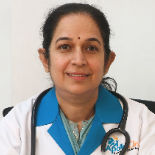
Dr. Anshu Sethi
Paediatrician
33 Years • MBBS, MD, DM (Paediatrics & Neonatology)
Pune
Apollo Clinic, Viman Nagar, Pune
(75+ Patients)

Dr Stephanie Rachel Dsouza
neonatologist
7 Years • MBBS, MD Peadiatrics, FNNF
Bangalore
Apollo Clinic Bellandur, Bangalore

Dr Mahima Shetty K R
Paediatrician
22 Years • MBBS, MD – PAEDAITRICS
Bengaluru
Apollo Clinic, Sarjapur Road, Bengaluru

Dr. Sameer Mhatre
Paediatrician
26 Years • MBBS , MD (Paediatrics)
Pune
Apollo Clinic, Viman Nagar, Pune

Dr. Jayaram Y R
Paediatrician
37 Years • MBBS, DCH
Bengaluru
Apollo Clinic, JP nagar, Bengaluru

Dr. R Lakshmi Deepika
Paediatrician
10 Years • MBBS, M D Paediatrics, FELLOWSHIP in Paediatric and Adolescent Endocrinology, Diabetes Education And Learning (IDEAL) Program for Paediatric & Adolescent Diabetes Educators
Bengaluru
Apollo Clinic, Electronic City, Bengaluru

Dr. Ankita Maheswari
Paediatric Endocrinologist
16 Years • MBBS, Pediatric & Adolescent Endocrinologist. MD, PDF (Pediatric endocrinology) ESPE fellow ( Southampton, UK) Pediatrics and Child Care. Consultant - Paediatric Endocrinologist.
Indore
Apollo Hospitals Vijay Nagar, Indore
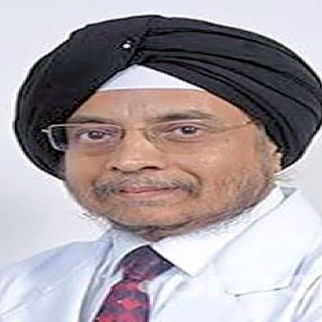
Dr. I P S Kochar
Paediatric Endocrinologist
16 Years • MBBS, MD, MAMS, MRCPH
Delhi
Apollo Hospitals Indraprastha, Delhi
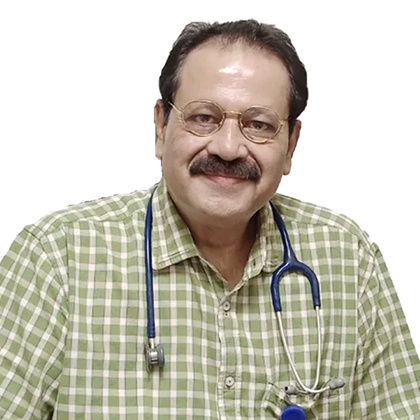
Dr. Subrata Dey
Paediatric Endocrinologist
27 Years • HOD Academics Post Graduate Paediatrics, MBBS (Vel), DCH (Vel), MD (JIPMER), DNB MNAMS, MRCP (UK), Fellowship in Pediatric Endocrinology at Cincinnati Children's Hospital USA, US Board Certified in Pediatrics & Endocrinology
Kolkata
Apollo Multispeciality Hospitals , Kolkata, Kolkata
(25+ Patients)
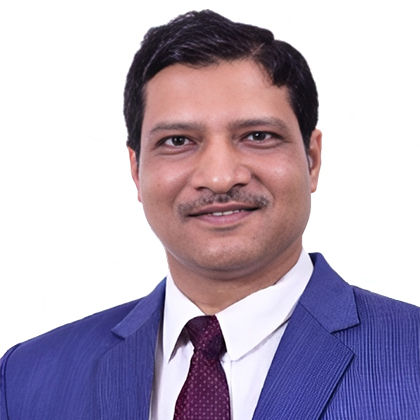
Prof. Dr. Abhay Kumar Sahoo
Endocrinologist
18 Years • MBBS (MKCG Medical College), MD (General Medicine - BHU) , DM (Endocrinology & Metabolism : AIIMS, New Delhi). FACE(Fellowship in American college of Endocrinology). Senior Consultant - Endocrinology & Metabolism.
Bhubaneswar
Apollo Hospitals Old Sainik School Road, Bhubaneswar
(450+ Patients)

Dr. Karthik Subramaniam
Paediatric Endocrinologist
6 Years • MD General medicine, DM Endocrinology
Angamaly
Apollo Hospitals Karukutty, Angamaly
(25+ Patients)
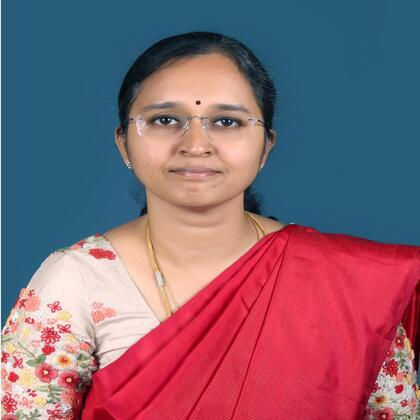
Dr. Soundaram V
Paediatric Endocrinologist
10 Years • MBBS, MD.Paediatrics (2014), Fellow in Paediatric & Adolescent Endocrinology.
Chennai
Apollo Children Hospitals Greams Road, Chennai
(150+ Patients)
Book Consult for Paediatric Endocrinology Online
Booking an appointment with a top paediatric endocrinologist is now easy with Apollo 24|7. Our experienced specialists are available for online and in-person consultations at trusted hospitals and clinics, offering convenient appointment slots to suit your schedule. With Apollo 24|7, you can access the expertise of leading paediatric endocrinologists who will help you manage your child's hormonal health, growth, and development. Don't wait; book your appointment today and take the first step towards ensuring your child's optimal well-being.
What is Paediatric Endocrinology?
Paediatric endocrinology is a medical subspeciality that focuses on the diagnosis and management of hormone-related diseases in children. These conditions often involve the endocrine glands, such as the thyroid, adrenal glands, pituitary, and pancreas, which are responsible for producing hormones that regulate essential body functions.
The speciality plays a crucial role in treating developmental issues, growth disorders, diabetes, and other metabolic problems in children. Understanding and managing these conditions are vital for ensuring normal growth and development in paediatric patients, making this speciality a critical component of child healthcare services.
Who is a Paediatric Endocrinologist?
A paediatric endocrinologist is a medical doctor who has undergone additional training to specialise in managing disorders of the endocrine system in children. These specialists are adept at diagnosing and treating conditions that affect a child's growth and development due to hormonal imbalances.
They are qualified to manage a wide range of health issues including diabetes, growth disorders, pubertal abnormalities, and thyroid dysfunctions. Their expertise also extends to handling metabolic disorders and other hormonal problems.
To become a paediatric endocrinologist, a doctor must complete medical school followed by specialised training in paediatrics and further sub-specialisation in endocrinology.
What Does a Paediatric Endocrinologist Do?
A paediatric endocrinologist specialises in diagnosing and managing hormonal disorders in children, which often involves a blend of clinical assessments and tailored treatments. These specialists play a vital role in ensuring children achieve normal growth and developmental milestones through hormone regulation and management.
Key Responsibilities:
Diagnosis of Hormonal Disorders: They identify conditions like diabetes, thyroid disorders, growth hormone deficiencies, and adrenal gland disorders by analysing symptoms and conducting hormone tests.
Treatment Planning: Develop treatment plans that may include hormone therapies, medications, and lifestyle advice tailored to the individual needs of each child.
Monitoring Growth and Development: Regularly tracking the growth and developmental progress of their patients to adjust treatment plans as necessary.
Daily Activities:
Consultations: Meet with patients and their families to evaluate symptoms, discuss concerns, and provide explanations about diagnostic tests and treatment options.
Managing Treatment Regimens: Prescribing medications or hormone therapies and providing guidance on managing these treatments at home.
Collaborative Care: Working closely with paediatricians, nurses, and other healthcare professionals to provide comprehensive care.
Research and Education: Staying updated with the latest advancements in paediatric endocrinology and often participating in research to improve treatment options.
What are the Other Sub-specialities of Paediatric Endocrinology?
Paediatric endocrinology encompasses a range of sub-specialities, each addressing specific aspects of hormonal issues in children. Understanding these can help parents and caregivers recognise the expertise needed for particular disorders affecting their child's health and development.
Diabetes Management: Managed by a paediatric diabetes doctor, this sub-speciality focuses on the care of children with type 1 and type 2 diabetes. It involves monitoring blood sugar levels, dietary planning, insulin management, and education on managing diabetes daily.
Growth Disorders: A growth disorder specialist addresses problems related to abnormal growth in children, whether it’s growth hormone deficiencies or conditions that cause excessive growth. Treatment often involves hormone replacement therapies and monitoring growth progress.
Thyroid Disorders: This area deals with issues in the thyroid gland, which can affect a child’s energy level, growth, and development. Treatments may include hormone supplements and management of thyroid function.
Puberty Disorders: A doctor for puberty problems in kids manages delayed or precocious (early) puberty. Treatment approaches can include hormone therapies to either delay or accelerate the onset of puberty, ensuring psychological and physical health.
Adrenal Gland Disorders: Managed by a paediatric hormone specialist, this focuses on conditions that affect the adrenal glands, such as Addison’s disease or Cushing's syndrome. Treatments involve regulating cortisol and other hormones critical for metabolism and stress response.
Bone and Calcium Metabolism Disorders: This sub-speciality tackles diseases like rickets or osteoporosis, focusing on managing calcium levels and promoting normal bone development and maintenance.
Pituitary Disorders: These conditions are related to pituitary gland dysfunction, which can impact overall hormonal balance and affect various body functions. Treatment may involve managing hormone production or using hormone replacement therapies.
Genetic Endocrine Disorders: This area covers disorders due to genetic abnormalities that affect hormones. Managed by a kids hormone treatment doctor, it often requires comprehensive treatment plans that may include hormone therapies and genetic counselling.
Each sub-speciality under paediatric endocrinology plays a vital role in addressing complex hormonal issues, ensuring that children receive the specialised care they need for their unique conditions.
What are the Paediatric Endocrinology Examinations or Tests Performed by the Paediatric Endocrinologist?
Paediatric endocrinologists utilise a variety of diagnostic tests and examinations to accurately assess and manage hormonal disorders in children. These tests are crucial for determining the specific nature of an endocrine problem and devising an effective treatment plan.
Blood Tests: These are frequently used to measure hormone levels in the blood, such as thyroid hormones, growth hormones, and cortisol. Blood tests can help diagnose conditions like hypothyroidism, growth hormone deficiency, and adrenal insufficiency.
Urine Tests: Urine analysis can help detect abnormalities in hormone metabolism that might not be evident in blood tests. For example, urine tests for catecholamines are used to diagnose pheochromocytoma, a rare tumour of the adrenal gland.
Bone Age X-rays: This test determines the maturation of a child's bones compared to their chronological age. It is particularly useful in diagnosing growth disorders and can assist in predicting future growth potential.
Stimulation and Suppression Tests: These tests assess how well the endocrine glands work and respond to stimulation or suppression. For instance, a growth hormone stimulation test can diagnose growth hormone deficiency by measuring how well the pituitary gland releases growth hormones when provoked by certain stimuli.
Genetic Tests: These are performed to identify specific genetic disorders affecting the endocrine system, such as Turner syndrome or Klinefelter syndrome, which can impact growth and development.
Imaging Tests: Imaging techniques like MRI or CT scans are often used to visually assess the pituitary gland and other endocrine glands for abnormalities such as tumours or structural irregularities.
What are the Common Conditions & Diseases that Paediatric Endocrinologists Treat?
Paediatric endocrinologists are specialists who manage a variety of hormonal disorders that affect children’s growth, development, and metabolism. Here are the top 15 conditions they frequently treat:
Type 1 Diabetes: An autoimmune condition where the pancreas produces little or no insulin.
Growth Hormone Deficiency: A lack of growth hormone, affecting normal growth rates in children.
Hypothyroidism: Insufficient thyroid hormone production, which can impact growth and development.
Precocious Puberty: Early onset of puberty, leading to accelerated growth and hormonal changes.
Type 2 Diabetes: Typically associated with obesity, where the body becomes resistant to insulin.
Congenital Adrenal Hyperplasia: A group of genetic disorders affecting the adrenal glands.
Thyroid Nodules: Abnormal growths in the thyroid gland which may produce excess hormones.
Turner Syndrome: A chromosomal disorder in females that affects development.
Cushing's Syndrome: Overproduction of cortisol by the adrenal glands, affecting metabolism.
Adrenal Insufficiency: The adrenal glands do not produce enough steroid hormones.
Hypoglycemia: Low blood sugar levels, which can affect metabolic health.
Hyperthyroidism: Excessive thyroid hormone production causing various health issues.
Pituitary Disorders: Problems with the pituitary gland that affect various hormonal controls.
Rickets: A bone weakness condition caused by vitamin D, calcium, or phosphate deficiency.
Delayed Puberty: Late onset of puberty, affecting growth and development.
These conditions are complex and can have profound effects on a child's health, which is why it is crucial to book paediatric endocrinologist visits for accurate diagnosis and management.
Reasons to See a Paediatric Endocrinologist
Consulting a paediatric endocrinologist is crucial when a child exhibits symptoms or has conditions that suggest hormonal imbalances which can affect their overall growth and development.
Abnormal Growth Patterns: Whether it's stunted growth or unusually rapid growth, these may indicate hormone imbalances.
Early or Delayed Puberty: Signs of puberty that appear too early or significantly late necessitate specialist evaluation.
Weight Issues: Unexplained weight gain or loss, which can be symptoms of thyroid or adrenal disorders.
Fatigue or Weakness: Persistent tiredness or muscle weakness could be signs of endocrine health issues.
Blood Sugar Problems: Symptoms of diabetes such as excessive thirst and frequent urination.
For convenience and immediate access to care, consider an online paediatric endocrinologist consultation to discuss any concerning symptoms or to manage ongoing endocrine treatments.
What Types of Procedures do Paediatric Endocrinologists Perform?
Paediatric endocrinologists specialise in both therapeutic treatments and surgical interventions to manage various endocrine disorders in children. Here’s a breakdown of the top procedures they perform, categorised into therapies and surgeries:
Top Therapies:
Hormone Replacement Therapy: Administering necessary hormones to correct hormonal deficiencies, such as thyroid hormone or growth hormone.
Insulin Therapy: Essential for managing Type 1 and Type 2 diabetes by regulating blood glucose levels.
Nutritional Counselling: Offering dietary advice to support the treatment of endocrine disorders, including diabetes and obesity.
Medication Management: Prescribing and adjusting medications that affect hormone levels, such as corticosteroids for adrenal insufficiency.
Lifestyle Modification Programs: Developing customised programs to help manage symptoms and prevent complications of endocrine diseases through exercise and lifestyle changes.
Puberty Blockers: Administering medications to delay early puberty in children experiencing precocious puberty.
Calcium and Vitamin D Supplementation: Prescribing supplements to manage conditions like rickets or other bone health issues related to endocrine disorders.
Top Surgeries:
Thyroidectomy: Partial or complete removal of the thyroid gland to treat conditions like thyroid cancer or severe hyperthyroidism.
Adrenalectomy: Removal of the adrenal glands to treat tumours or hyperfunctioning of adrenal glands.
Pituitary Surgery: Surgical interventions to remove tumours or correct abnormalities in the pituitary gland.
Understanding these procedures can help in discussing treatment options effectively with your specialist. It’s also important to consider the paediatric endocrinologist fee when planning for specialised procedures, as costs can vary based on the complexity and necessity of the treatment.
Why Choose an Apollo 24|7 Paediatric Endocrinologist?
Apollo 24|7 paediatric endocrinologists are highly qualified and experienced in managing a wide range of endocrine disorders in children. Our specialists are committed to providing personalised care, tailored to the unique needs of each child. With access to advanced diagnostic tools and treatment options, our paediatric endocrinologists ensure comprehensive care for optimal hormonal health.
Apollo 24|7 offers seamless access to consultations, both online and in-clinic, making it convenient for parents to seek expert advice for their child's endocrine concerns. Our multidisciplinary approach ensures that children receive holistic care, addressing not only their endocrine health but also their overall well-being.
What to Expect When Visiting a Paediatric Endocrinologist?
Visiting a paediatric endocrinologist involves comprehensive assessments tailored to diagnose and manage hormonal disorders affecting children. Here’s what patients can typically expect:
Initial Consultation: Discussing the child’s medical history, symptoms, and any previous treatments.
Physical Examination: Conducting a thorough physical assessment to check for any visible signs of hormonal imbalances.
Diagnostic Testing: Ordering tests such as blood tests, urine tests, or imaging studies to confirm the diagnosis.
Treatment Planning: Outlining a treatment plan that may include medication, therapy, or lifestyle changes.
Follow-up Appointments: Scheduling follow-ups to monitor the child’s progress and adjust treatments as necessary.
For those seeking treatment, it’s helpful to search for a “paediatric endocrinologist near me” to find a specialist close to home. Additionally, reading paediatric endocrinologist reviews can provide insights into the specialist’s approach and effectiveness in treating similar cases.
How Can I Get an Appointment With a Paediatric Endocrinologist?
To book an appointment with a paediatric endocrinologist at Apollo 24|7, you can:
Book Online: Visit the Apollo 24|7 website and navigate to the "Specialities" section. Select "Paediatric Endocrinology" and choose a paediatric endocrinologist from the list of available specialists. Follow the prompts to select a convenient date and time for your appointment.
Use the Apollo 24|7 App: Download the Apollo 24|7 app on your smartphone. Log in or create an account, then select "Specialities" and choose "Paediatric Endocrinology." Browse the list of paediatric endocrinologists and select a specialist. Pick a suitable date and time for your appointment and confirm your booking.
Paediatric Endocrinologists in top cities
- •Best Paediatric Endocrinologists in Chennai
- •Best Paediatric Endocrinologists in Angamaly
- •Best Paediatric Endocrinologists in Bengaluru
- •Best Paediatric Endocrinologists in Delhi
- •Best Paediatric Endocrinologists in Hyderabad
- •Best Paediatric Endocrinologists in Indore
- •Best Paediatric Endocrinologists in Kolkata
- •Best Paediatric Endocrinologists in Mumbai
Related Treatments
- •Treatment for Congenital adrenal hyperplasia
- •Treatment for Adhd
- •Treatment for Baby Colic
- •Treatment for Biotinidase Deficiency
- •Treatment for Birth Defects
- •Treatment for Bloom Syndrome
- •Treatment for Brachydactyly
- •Treatment for Breast Feeding Couseling
- •Treatment for Breast Lumps
- •Treatment for Child Development Disease Treatment
- •Treatment for Child Nutrition Guidance
- •Treatment for Childhood Bone And Soft Tissue Tumors
- •Treatment for Childhood Infections
- •Treatment for Childhood Nutrition And Child Safety
- •Treatment for Children S Health
- •Treatment for Children S Infectious Diseases
- •Treatment for Cholera
- •Treatment for Congenital Bile Acid Synthesis Defect
- •Treatment for Congenital Diseases
- •Treatment for Congenital Disorders Evaluation Treatment
FAQs
What is paediatric endocrinology?
Paediatric endocrinology is a medical speciality focusing on the diagnosis and treatment of hormonal disorders affecting children. This includes issues with growth, puberty, diabetes, and thyroid function, ensuring children achieve normal physical and developmental milestones.
When to see a paediatric endocrinologist?
A visit to a paediatric endocrinologist is recommended if your child shows abnormal growth patterns, unexplained weight gain or loss, early or delayed puberty signs, or symptoms of diabetes such as frequent urination and excessive thirst.
What does a paediatric endocrinologist do for early puberty?
For early puberty, a paediatric endocrinologist can provide treatments that may delay further development until a more appropriate age. This typically involves hormone therapies that are carefully monitored to ensure safety and effectiveness in managing the symptoms of precocious puberty.
Can paediatric endocrinologists increase height?
Paediatric endocrinologists can address conditions impacting growth and potentially increase height through treatments like hormone therapy, especially if growth disorders are diagnosed early. However, results vary based on the underlying condition and timing of the intervention.
Can paediatric endocrinologists prescribe growth hormone?
Yes, paediatric endocrinologists can prescribe growth hormone to children who have a proven deficiency or specific medical conditions that affect their growth. This treatment aims to help them reach a height closer to their genetic potential.
How do they test for endocrinology?
Endocrinological testing usually involves blood and urine tests to measure hormone levels, stimulation and suppression tests to assess gland function, and imaging tests like X-rays or MRIs to examine gland structure and identify any abnormalities.
Which endocrine disorder is commonly found in children?
The most common endocrine disorder in children is Type 1 diabetes, which involves the body’s immune system attacking the pancreatic cells that produce insulin, crucial for regulating blood sugar levels.
What skills are required for a paediatric endocrinologist?
Key skills for a paediatric endocrinologist include advanced knowledge in paediatrics and endocrinology, strong communication skills to empathetically care for children and their families, and the ability to work in a multidisciplinary team environment. Certifications like Basic Life Support (BLS) and Pediatric Advanced Life Support (PALS) are also important.
How do paediatric endocrinologists work with families?
Paediatric endocrinologists collaborate closely with families to develop personalised treatment plans tailored to each child's specific needs. They provide ongoing education and support to help families manage chronic conditions, adjust treatment plans as the child grows, and ensure the child's overall health and well-being through a family-centred approach to care.
How can parents support their child with a paediatric endocrine disorder?
Parents can support their child by working closely with their paediatric endocrinologist, following the prescribed treatment plan, and creating a supportive home environment. This may involve learning about the condition, administering medications, monitoring symptoms, encouraging healthy lifestyle habits, and providing emotional support to help the child cope with the challenges of managing a chronic condition.